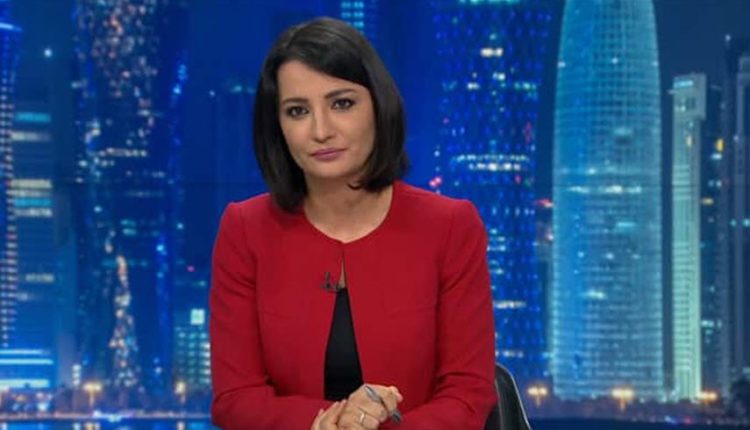
Al-Jazeera’s broadcaster, Ghada Owais, said that the Saudi electronic flies hacked her phone and stole private photos, and launched an unethical attack against her.
Owais stressed, in an article she wrote for The Washington Post that all attempts to undermine her because of her criticism of the regimes in the Kingdom and the UAE will not lead to her silence.
“It was meant to be a special evening for me and my husband. We were celebrating his birthday with a quiet dinner at home last month when I received an urgent message from a friend alerting me to an attack on Twitter. Though I’ve worked as a journalist in the Middle East for 20 years and learned how to deal with the challenges of being a woman in the field, I had never seen anything like this before. What I read made me angry, shocked and scared.
“Private photos of me in a swimsuit had been stolen from my phone and posted on Twitter with offensive, misogynistic and false claims that the photos were taken at the private residence of Al Jazeera Media Network’s Qatari chairman, Sheikh Hamad Bin Thamer Al-Thani. I watched aghast as the number of retweets increased by the hundreds each minute.
“Within just a few hours, photos of me in a hot tub — some of them pixelated to make people believe, incorrectly, that I was nude — were tweeted more than 40,000 times. This was not the first time that I had been subjected to cyberbullying or a coordinated campaign against me on social media. But this time, it appeared the attackers had hacked my phone.
“Just days later, reports emerged that Saudi dissident Omar Abdulaziz had received new warnings from the Canadian police that he was under threat. Coupled with the hate-filled, obscene language coming from Twitter-verified accounts, this attack shook me to the core.
“‘Tell us about your night. How was the prostitution? Were you drunk while you were naked?’ wrote a Twitter user with the name Saoud Bin Abdulaziz Algharibi who has been active on the site since 2013. ‘No wonder she’s naked. She’s a cheap Christian. She’s old and ugly,’ he continued.
“Like almost all of the Saudi accounts attacking me, the majority of Algharibi’s Twitter timeline is filled with tweets praising Saudi Crown Prince Mohammed bin Salman. The attacks also targeted my colleague, Ola Al-Fares, a Jordanian news anchor with millions of online followers. They used the hashtag #Ola_Sauna to claim that her success was due to sexual favors, telling her to give up on journalism and instead focus on ‘providing other services.
“Almost all of the accounts abusing me displayed the Saudi flag, a picture of MBS, as the Saudi crown prince is often known, or a photograph of Abu Dhabi’s Crown Prince Mohammed bin Zayed. Saudi and Emirati public figures, including Dhahi Khalfan, former head of Dubai Police; Naif Al-Asaker, a mufti at the Saudi Ministry of Islamic Affairs and a close ally to MBS; and Hamad Al-Mazroui, a close associate of the UAE crown prince, amplified these posts, which led to ordinary Saudis and Emiratis joining the assault. Within hours, the hashtags #Ghada_Jacuzzi and #Ola_Sauna were trending in Saudi Arabia, Twitter’s fifth-largest market.
“Although I was the target of this latest assault — no doubt because I regularly present critical reporting about Saudi Arabia and the UAE — the message to journalists across the Middle East is very clear: Don’t criticize the crown princes.
“In this case, the trolls were attacking Ola and I not only as journalists but as women who dared to be critical.
“A cartoon depicting me sprawled on the desk of Al Jazeera’s chairman with the caption “I want a raise” was furiously retweeted. For these people, it seemed incomprehensible that a woman could be successful based on her merit or hard work. After all, as far as their governments are concerned, women should be seen but not heard — unless they occupy token positions to demonstrate a facade of modernity and can be paraded in front of the world’s media. There has been a disturbing rise in gender-related harassment and threats against female public figures. The movement for women’s rights in Saudi Arabia has terrified the government, which has insisted on doling out reforms on its own terms while detaining the female activists behind the movement.
“It’s their courage, and that of the many unknown heroes and victims of autocratic governments in the Middle East, that inspires me to continue my work, no matter how brutal and misogynistic the smear campaigns, no matter how many death threats I receive.
“Last Friday, a Turkish court began hearings on Post contributing columnist Jamal Khashoggi’s murder — a stark reminder that justice has still not been served two years on. Jamal himself once warned me to ignore and block these Twitter accounts. Even though the man widely believed to be responsible for Jamal’s murder may never be held to account, we must not let him and those who work for him imperil one of the fundamental pillars of a free society — a free press.
“Jamal himself once warned me to ignore and block these Twitter accounts. Even though the man widely believed to be responsible for Jamal’s murder may never be held to account, we must not let him and those who work for him imperil one of the fundamental pillars of a free society — a free press.
“At a time when Twitter has taken proactive steps to stop hate speech — for example, banning people such as Katie Hopkins in Britain or by flagging tweets by President Trump — it is unacceptable that attacks like this are allowed to continue. Twitter and other social media sites must take action to protect journalists such as myself and ensure that its platform is no longer misused by authoritarian regimes.”